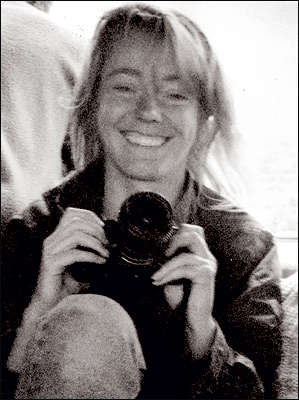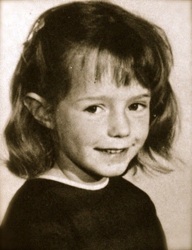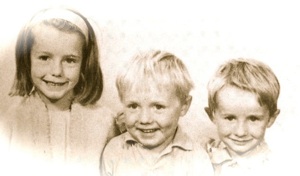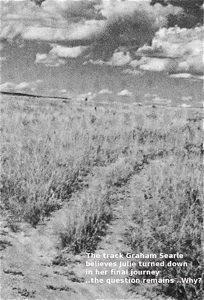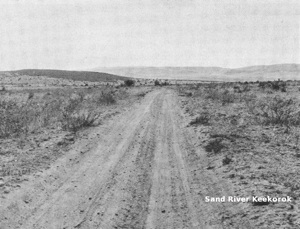Julie Ann Ward left Nairobi on 2nd September heading for a weekend away in the Masai Mara. She drove a yellow-brown Suzuki to the reserve but never returned.
Julie was a keen wildlife photographer, and was taking an extended break from her work as a publishers assistant in Suffolk. She was born 20th April 1960. Her ‘family’ nickname was “Muff
The Julie Ward story is a tragic case of a young woman struck down in the prime of her life whilst taking a ‘gap year’ to pursue her personal development, sense of adventure, and love of photography.
The case would almost certainly have been brushed under the table had the authorities at the time had their ways.
The attempted verdict of suicide would have closed the case and confined it to gather dust on a coroners shelf. However, one person, John Ward, Julie’s father, came to Kenya looking for the truth.
Without John Ward there would be have been no case, it was, and still is his single handed determination that has drawn out this case for over 20yrs, and still today new evidence and revelations are being unearthed.
The unbelievable anguish experienced by Julie’s parents in losing their daughter in the most horrific of circumstances, was further compounded by a remarkably reluctant response on the parts of the UK and Kenyan authorities to investigate further.
How and why could and would they do that?
They had not gambled on the fact that someone out there wanted to get to the truth of the matter, and that person had the personal tenacity, ability and means to pursue not just the murder of his daughter but also two governments who had vested interests in closing the case down.
Now in his mid 70’s John Ward explains some of the salient points of the case in this rare footage.
TIMELINE:
February 1988 – Julie, 28, leaves home in Suffolk for seven-month trip
7 September 1988 – She disappears from her campsite at the Masai Mara game reserve
13 September 1988 – Her charred and mutilated remains are found nearby.Kenyan authorities initially insist she had either committed suicide or been killed by wild animals.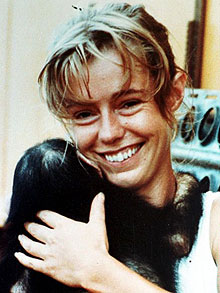
January 1989 – Kenyan police refuse to conduct a murder inquiry. Julie’s father begins his own investigation.
October 1989 – Kenyan court rules that Julie was murdered.
February 1990 – Mr Ward persuades UK Foreign Secretary Douglas Hurd to order an investigation by Scotland Yard. Detectives fly to Kenya.
January 1992 – Two rangers from the Masai Mara reserve go on trial for Julie’s murder.
June 1992 – The pair are acquitted, and the trial judge declares there has been a cover-up to protect Kenya’s expanding tourist industry.
November 1993 – Focus switches to claims that Julie was murdered for political reasons after stumbling across a smuggling operation.
1996 – The man behind the claims is discredited.
1997 – Kenya provides a team of independent police officers to mount a fresh inquiry into Julie’s death as her father keeps up his high-profile campaign to find her killers.
July 1998 -Gamekeeper Simon Ole Makallah is charged with her murder.
1 March 1999 – Makallah goes on trial in Nairobi.
17 September 1999 – Judge clears Makallah of murder. After the acquittal, Mr Ward demands a retrial, but his plea goes unanswered.
November 2001 – Police Complaints Authority agrees to supervise an investigation by another force of the original Scotland Yard inquiry.
2 March 2004 – Greater Suffolk coroner Peter Dean announces he will resume an inquest into Julie’s death, 16 years after it was opened.
26 April 2004 – The long-awaited inquest takes place in Ipswich.
6 Sept 2008-Chief Constable Jon Stoddart, wrote an independent report on behalf of Lincolnshire Police, said of the role of the FCO and the British High Commission: “There is clear evidence of inconsistency and contradictions, falsehoods and downright lies, and it is this that has not surprisingly led to John Ward believing that there was an active conspiracy to prevent him from identifying his daughter’s killers.”
Earlier in the report, Mr Stoddart said: “This realisation [that the initial police inquiry was flawed], allied to the brazen, deceitful and dishonest behaviour of the Kenyan police; the contradictions, untruths and evasive behaviour from a member of the British High Commission (political section) led to Mr Ward pursuing a different line of inquiry – namely that the authorities had conspired deliberately to prevent Julie’s murderer(s) from being brought to justice.”
New Kenya probe on Julie Ward murder
By PAUL REDFERN, Nation correspondent in London
Posted Sunday, October 11 2009 at 16:06
A new probe into the murder of the British tourist Julie Ward is set to begin after senior UK police officers persuaded their Kenyan counterparts that an investigation was possible based on the advances in forensic science.
Despite the difficulties in mounting an investigation – not the least of which is because of witness reliability 21 years after the murder – UK police officers including John Yates, the head of Scotland Yard’s anti terrorism squad appear to have convinced Kenyan officers that a new trial was possible, based on the identification of human DNA from the murder scene, which is believed to belong to one of her attackers.
The visit of Mr Yates who visited Kenya recently with two other senior Metropolitan Police detectives and John Ward, Miss Ward’s father, “was shrouded in secrecy because of Mr Yates’ sensitive role as head of the anti-terrorism squad and because Kenya has witnessed devastating attacks by al-Qaeda,” according to the Sunday Telegraph newspaper in the UK.
Police spokesman Eric Kiraithe said files of murder investigations are never closed so that the probe can continue whenever new evidence come up.
“Am aware of correspondences (with the UK detectives) to that effect and any new leads will be pursued but and am yet to know the details,” he said.
But Mr Ward who has spent nearly £2 million and made more than 100 visits to Kenya in a relentless pursuit of his daughter’s killers, is delighted with the news.
The new inquiry will be headed by the Kenyan police but it will be aided by at least two Scotland Yard detectives, the report said.
The Sunday Telegraph added that although the Julie Ward case has no link to terrorism, Mr Yates has decided to continue to head a handful of high-profile murder investigations that he had taken on in his former role as head of the Met’s Special Crime Directorate.
The new case is also said to be based on a “credible” new witness who has come forward claiming that she knows where some of the remains of Miss Ward were buried after her murder on the Maasai Mara game reserve in September 1988.
The woman, approached Mr Ward through a lawyer saying that the charred remains of Miss Ward that were found 21 years ago were placed in a remote area of the Maasai Mara to throw investigators off the scent of where the murder had actually taken place.
Mr Ward, 75, a retired hotelier from Brockley, Suffolk, welcomed the new inquiry yesterday and praised the determination of Scotland Yard to try to solve the case. He hopes a systematic dig will be carried out at the scene – a town on the edge of the Maasai Mara – where the witness says some of Miss Ward’s remains have been hidden.
“I welcome the new inquiry,” he told the Sunday Telegraph. “This case is solvable because we haven’t run out of leads yet. Armed with the new DNA evidence, what we need now is the full co-operation of the Kenyan authorities.”
Mr Yates has now flown home to Britain after meeting former Police Commissioner Major General Mohammed Ali. The other two officers travelled with Mr Ward to the crime scene on the Masai Mara during a visit in the summer.
Miss Ward was last seen alive in Kenya on September 6, 1988, after she travelled to the Maasai Mara with Dr Glen Burns, an Australian friend.
Her remains were found by her father on September 13.
An inquest in Britain in 2004 recorded a verdict of unlawful killing and there have been two separate murder trials in Kenya.
Two game wardens were accused of murder after Scotland Yard’s initial investigation but were acquitted in 1992. Seven years later, Simon Makallah, the head warden of the Masai Mara at the time of Miss Ward’s death, was tried for murder and also acquitted.
An investigation last year also revealed that the British authorities had deliberately obstructed Mr Ward in his pursuit of justice over her brutal murder. The Foreign and Commonwealth Office (FCO) and the British High Commission in Kenya were heavily criticised in an unpublished independent police report on the case, which highlighted mistakes and cover-ups over the murder.

